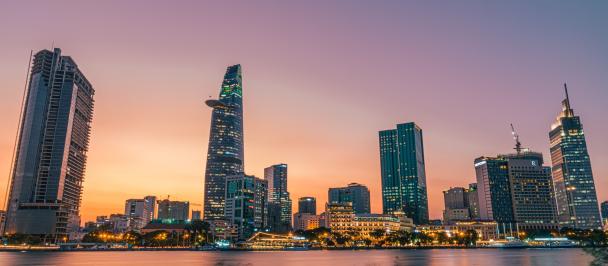Statement delivered by Haoliang Xu at the launch of lessons learned and strategies for local manufacturing of PPE for COVID-19 response based on literature review, experience, and case study from Turkey USHAS.
Lessons Learned and Strategies: PPE for COVID-19 Response
January 12, 2021
Your Excellency Deputy Minister Prof Dr. Emine Alp Mese,
Distinguished Ladies and Gentlemen,
I would like to thank the Turkish Government for the partnership with UNDP, established in 2011, and in particular Deputy Minister, Prof. Dr. Emine Alp Mese for her keynote remarks;
I am pleased to open this event together with her and to launch the report jointly developed by Uluslararası Sağlık Hizmetleri A.S. (USHAS, translated = International Healthcare Services A.S.) and UNDP’s Istanbul International Center on Private Sector in Development;
We have joined forces to help building capacity in least developed and developing countries, in a particularly important historic moment;
The partnership has been instrumental in relation to the quality assurance applied onto the production of Personal Protective Equipment (PPE) in response to COVID-19.
COVID-19 and UNDP Response
The COVID19 pandemic has led to a dramatic loss of human life and a severe human development crisis where, in some dimensions, conditions are equivalent to levels of deprivation last seen in the 1980s.
During this crisis, as many as 70% of small and medium sized enterprises (SMEs) have had to shut down operations, causing an flare up in unemployment rates across the globe.
Companies continue to struggle with the implementation of basic measures to ensure the health and safety of their employees such as protective equipment, which have become a scarce resource since the outbreak of the pandemic.
To address the immense challenges of this economic, humanitarian end developmental crisis, the full capacity of the UN system is being mobilized with UNDP spearheading the technical lead role of the socio-economic response;
In March, UNDP presented its integrated response to COVID19 with a focus on three immediate priorities: health systems support, multi-sectoral crisis management, and socio-economic impact assessment and response.
During this initial response phase, we (i) supported 88 governments procure personal protective equipment and medical commodities worth over $80 million; (ii) we developed over 70 socio-economic impact assessments together with UN and IFI partners, and (iii) allocated $12.6 million across 47 countries to help governments maintain business continuity and to plan, coordinate, communicate and finance their crisis responses.
Based on the lessons learned from the early response to the pandemic, we expanded on the initial strategy and launched an updated COVID19 response, called Beyond Recovery towards 2030.
The strategy is designed to help decision-makers make choices and manage complexity during uncertainty in four integrated areas: (i) Governance, (ii) social protection, (iii) green economy and (iv) digital disruption.
In addition to the overarching COVID19 response, the IICPSD in collaboration with other technical teams have developed a comprehensive Private Sector COVID19 Service Offer. The engagement with the private sector in UNDP’s COVID19 response focuses on:
- Partnering for collaborative response;
- Sustaining and supporting private sector resilience and viability, and
- Building capacity for resilient, inclusive, low-carbon recovery.
Interventions in each pillar are planned and carried out in close cooperation with Governments so that each intervention is tailor-made based on the national and local needs and situation.
Under the Private Sector Service Offer, we have created a global facility, in partnership with the UN Global Compact, the International Chamber of Commerce, and 3 private sector partners: DHL, Microsoft, and PwC.
The Global Facility aims to unlock public-private and private-private cooperation for sustainable response to COVID19 challenges to safeguard and support the private sector recovery with a particular aim on building the capacity building for resilience and sustainability of over 100,000 SMEs.
The Facility is leveraging the capabilities of the partners to support digitally enabled SME resilience and sustainability around 5 solutions areas including digitization, sustainable e-commerce, integrating SMEs into procurement, supply chains, and essential services, boosting access to capital, benefiting SMEs through collective action and coordination.
Through a phased approach, we will start with sound needs assessments, the mobilization of key stakeholders, and the development of actionable plans in support of COVID19 socio economic responses, initially focusing on Colombia, Ghana, the Philippines, and Turkey.
The Report
Today, I am happy to launch another outcome of the important partnership between UNDP’s IICPSD and USHAS, who have developed this timely report entitled 'Lessons Learned and Strategies for Local Manufacturing of PPE for COVID-19 Response based on literature review, experience, and Case Study from Turkey USHAS'.
With the significant rise in demand for protective equipment during the pandemic (projected by WHO to rise by 40%), many companies have sought help to meet this abrupt shock by setting up production facilities for PPE;
Despite the phenomenal news of vaccines that are at the brink of being approved and some already being rolled out, this will be a long and enduring process, which will require everyone, including those who have been vaccinated to adhere to public health measures such as that of socially distancing and wearing masks in public spaces, and so it is as important as ever we manage the high demand for standard approved, protective equipment produced under sustainable business practices;
However, setting up a production facility for PPE manufacturing is no easy task, and the intention of this guidance is to clarify points of uncertainty and showcase best practices on how to produce PPE that live up to the standard requirements of the desired destination. It seeks to gather the most vital information, such as the necessary input materials as well as resource materials, the required equipment/components, the International standard requirements for production facilities and PPE, capacity building/skills requirement for the involved labor force, and financial assessment including the unit prices and total cost of the production, from sources including WHO, IFC, WTO, OECD, ADB, and others, to serve as a one-stop-shop.
The audience of this report will be potential local manufacturers that wish to assist in meeting the high increase in demand for PPE equipment, due to COVID19 or any other similar pandemic; Indeed the potential for a future disease to spread is increasing and so too are the risks of a diseases escalating into an epidemic or even a pandemic. This is largely due to a number of reasons, for one, we have become more interconnected as we are able to travel more easily. Secondly, the increase in urbanization is another potential risk as the UN predicts that as many as 66% of the world’s population will live in cities in the future. Lastly, climate change affects every aspect of human existence, including the potential to spread of diseases.
This important report, will help current and potential manufacturers of PPE identify the critical bottlenecks and risks and address the challenges through sustainable business practices.
It will help improve efficiency and accelerate the manufacturing and delivery of protective equipment to serve export markets as well as local communities to best respond to the current and any future pandemics.
Indeed, this report will help countries to establish an ecosystem of sustainable PPE manufacturing supply chains, to meet the local and international demand for PPE which are in line with international standards. A major opportunity to accelerate the development and implementation of solutions to meet the rising demand in PPE, in countries that need them most.
Thank you.

 Locations
Locations


